
Top Pharma Strategy Consulting Firms to Work With - October 2025
Introduction
Strategy consulting in the pharmaceutical industry has evolved rapidly over the past year, driven by increased regulatory complexity, R&D pressures, and global health challenges. As of October 2025, selecting the right pharma strategy consulting firm is more critical than ever for long-term success.
While many companies are building internal strategy capabilities, pharma strategy consulting firms continue to play a key role—offering specialized expertise, addressing bandwidth constraints, and often providing cost-effective solutions. In the sections ahead, we reveal the top 10 pharma strategy consulting firms shaping the future of life sciences.
Top 10 Pharma Strategy Consulting Firms in 2025
1. G & Co.
G & Co. is a pharma strategy consulting firm that partners with enterprise healthcare and pharmaceutical companies to deliver long-term growth, operational clarity, and innovation-driven transformation.
G & Co. brings a unique blend of business strategy, digital product development, and customer experience consulting to the pharmaceutical sector. With experience supporting top healthcare brands, the firm offers pharmaceutical consulting services in go-to-market strategy, digital transformation, brand positioning, and commercial model evolution. G & Co. is recognized for aligning pharmaceutical strategy consulting with measurable business results and agile execution.
G & Co. is a minority business enterprise (MBE), as certified by the National Minority Supplier Development Council (NMSDC). If diversity inclusion is a part of your supplier process, contact us—we may be a great fit for your enterprise.
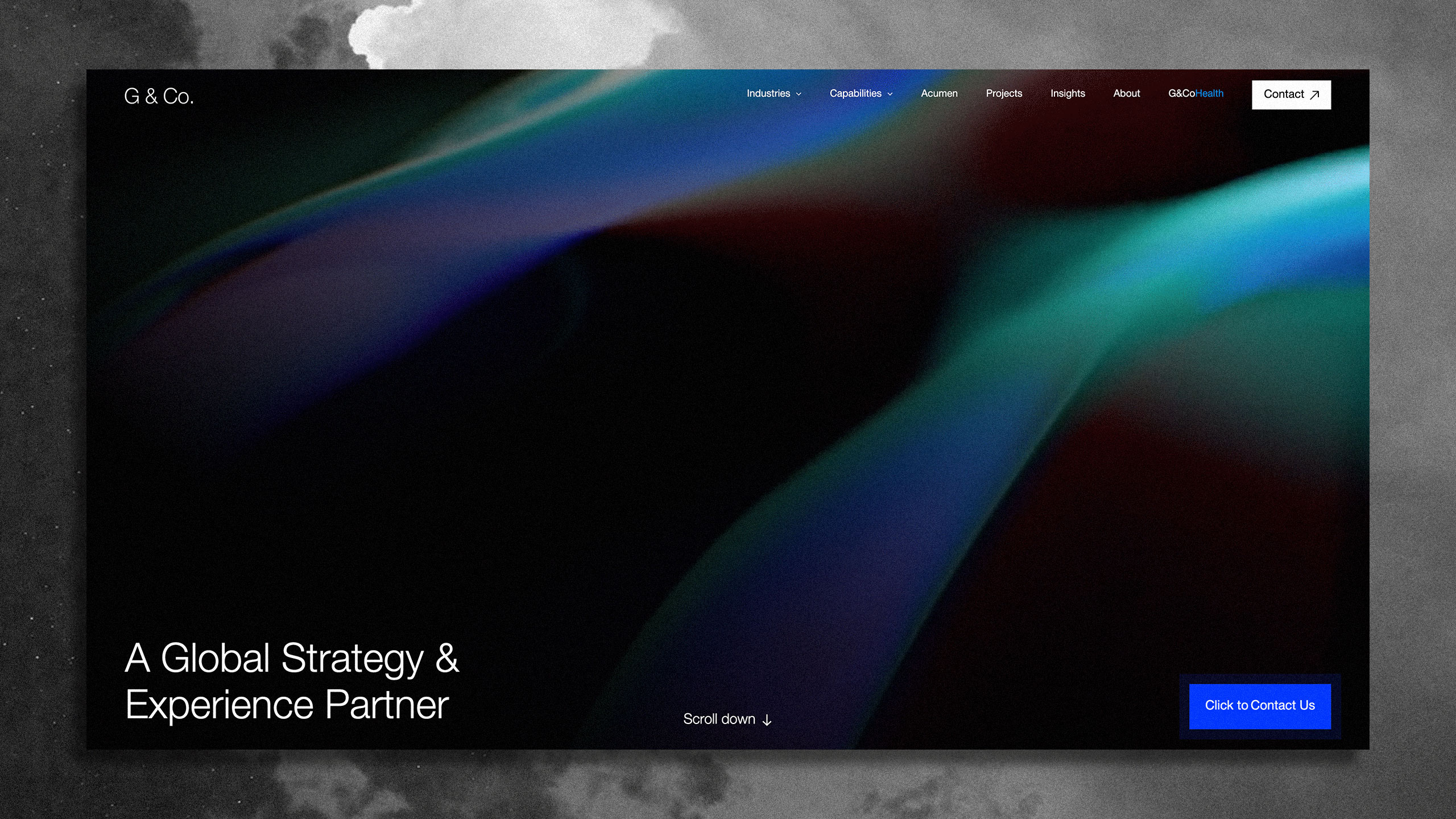
2. Blue Matter Consulting
Blue Matter is a specialized pharmaceutical strategy consulting firm focused on helping biopharma companies develop and commercialize innovative therapies.
The firm supports clients with strategy development across product launches, market access, and organizational design. Blue Matter often works with mid-sized and emerging biotechs, offering a collaborative approach and tailored insights that set it apart from larger pharma consulting companies. It is known for helping life sciences organizations with complex market entry and commercialization challenges.
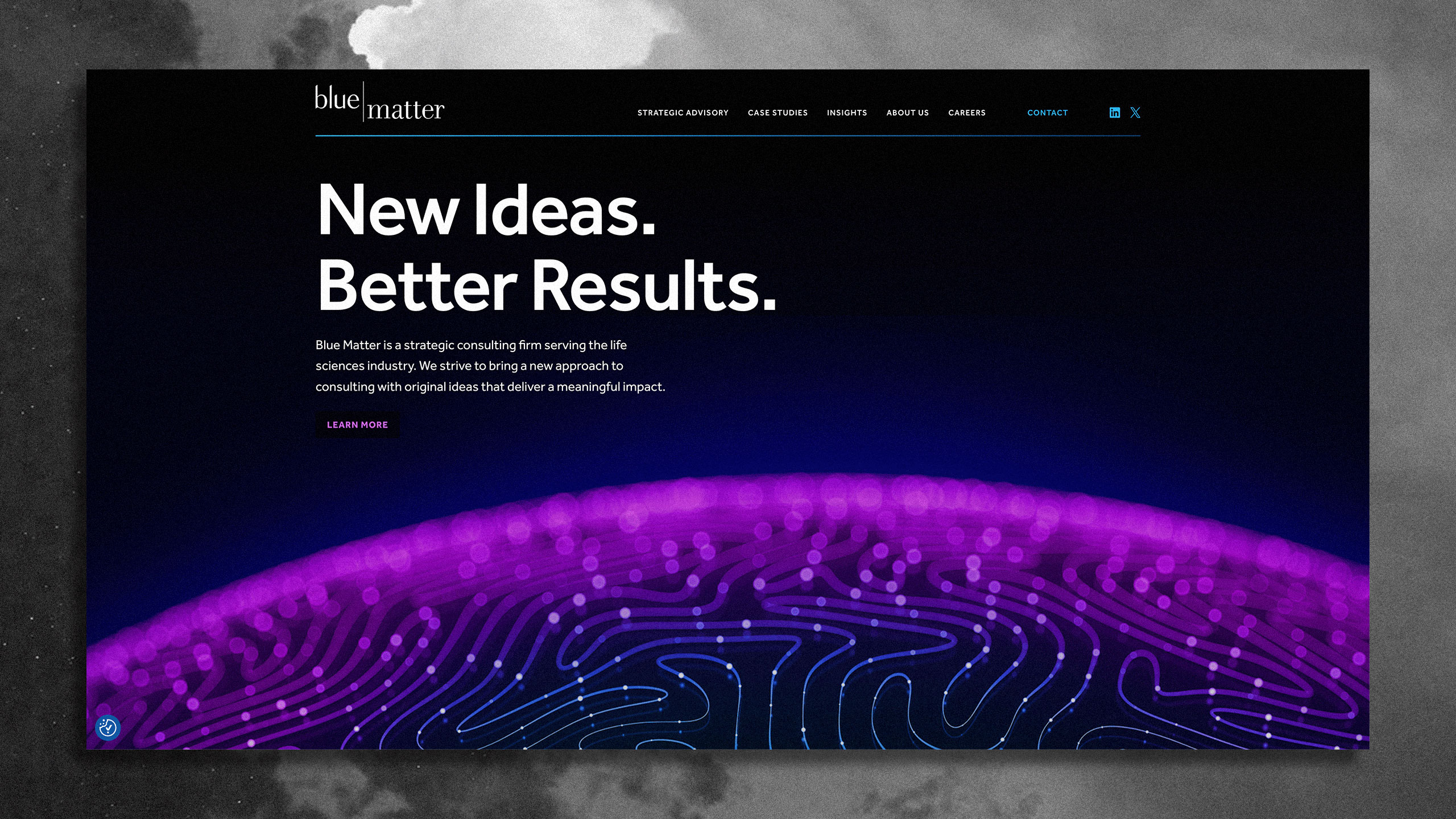
3. ClearView Healthcare Partners
ClearView is a boutique pharma consulting firm delivering deep scientific and strategic expertise across the life sciences industry.
Its services span portfolio planning, asset evaluation, pricing strategy, and new product launches. As a trusted pharmaceutical consulting company for both large-cap and early-stage biopharma, ClearView combines analytical rigor with tailored advisory support. Clients often turn to ClearView for insight-driven pharmaceutical strategy consulting grounded in strong technical and therapeutic area expertise.
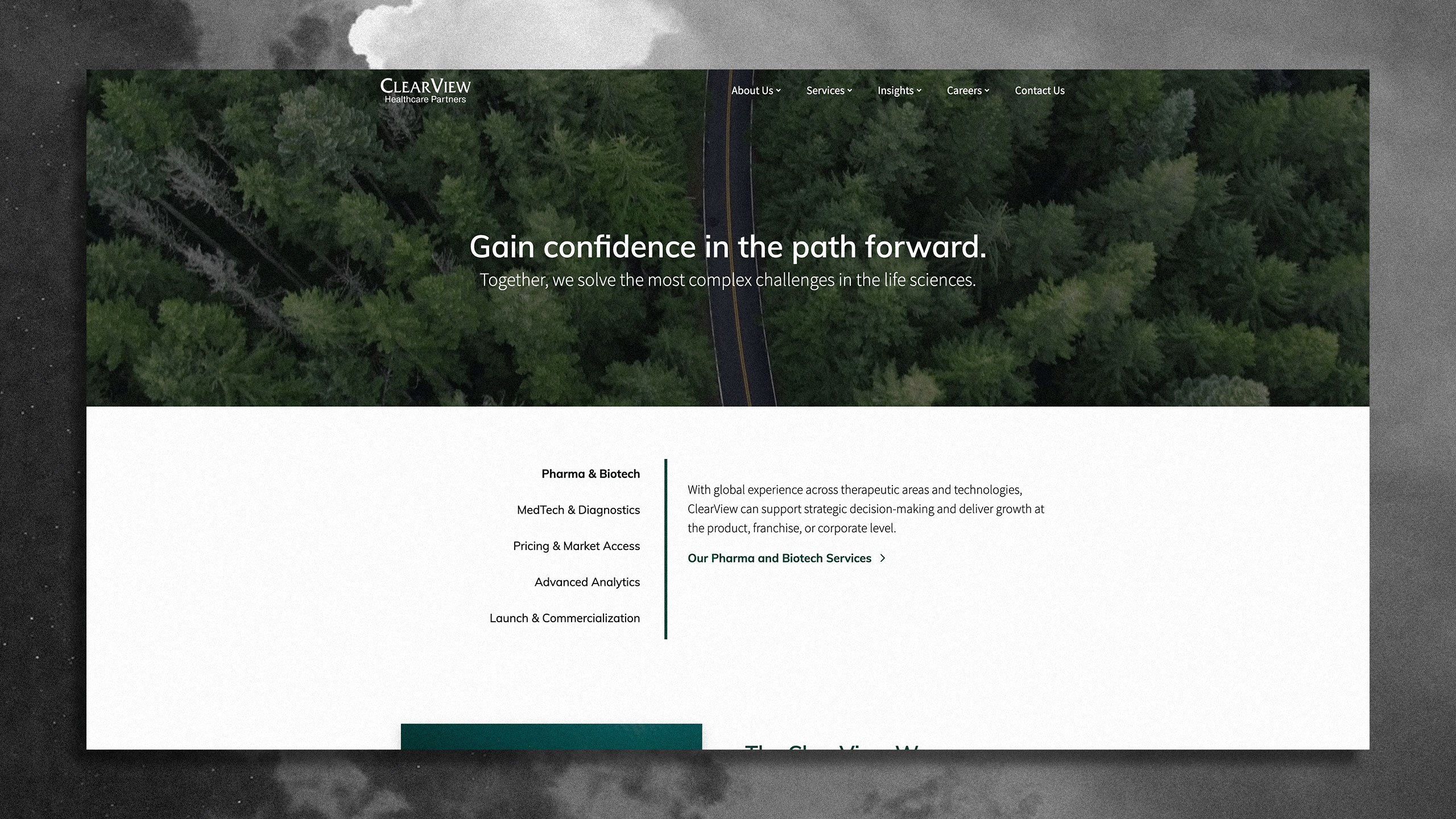
4. Putnam Associates
Putnam Associates is a strategy consulting firm focused exclusively on the life sciences industry, known for its work in commercial and pricing strategy.
Their pharmaceutical consulting services include global market assessments, forecasting, and strategic planning across therapeutic areas. As a pharma strategy consulting partner, Putnam works with both established and emerging pharmaceutical firms to support strategic decision-making throughout the product lifecycle.
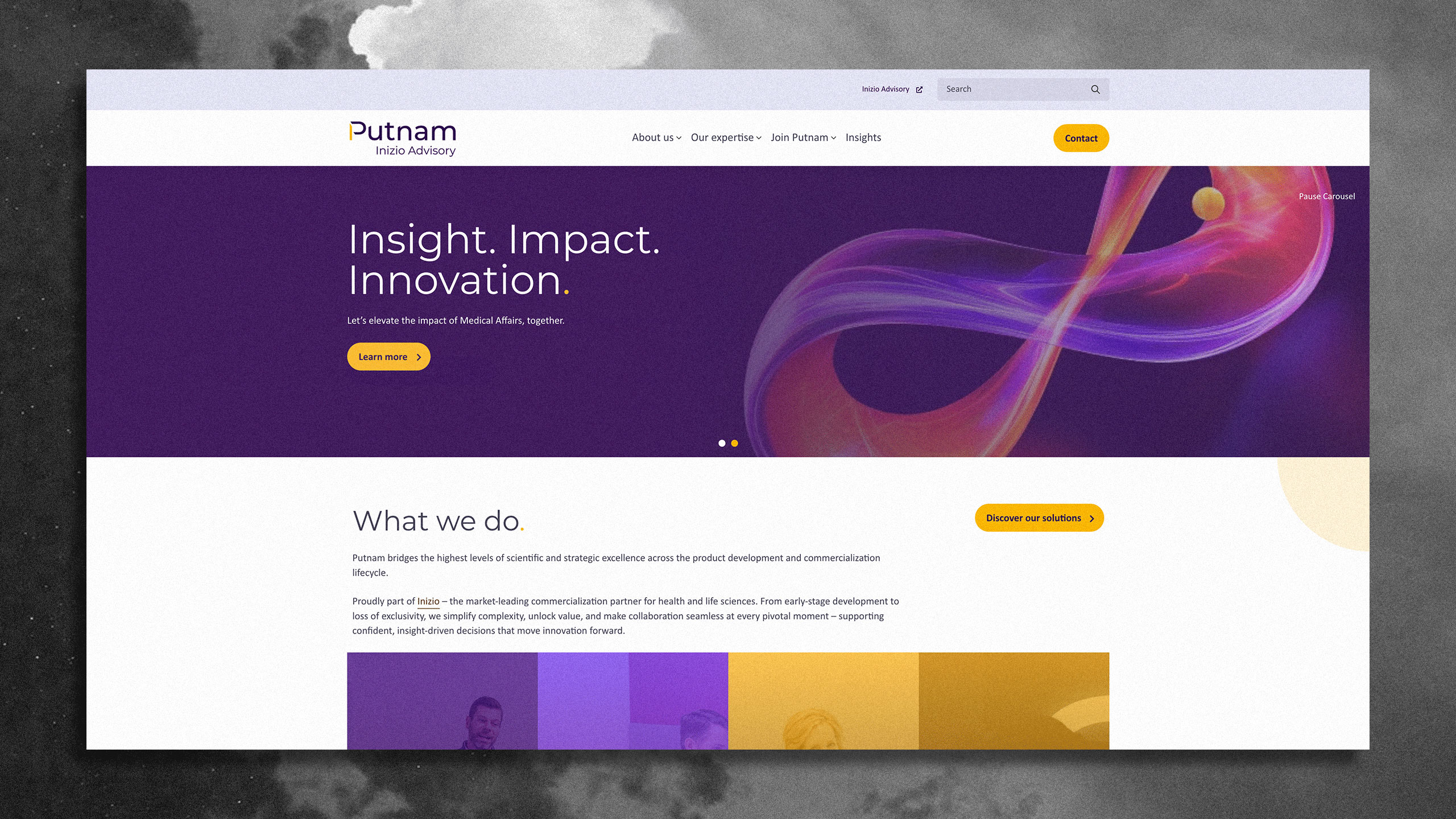
5. Prescient Healthcare Group
Prescient is a global pharmaceutical consulting firm specializing in strategic insight generation and competitive intelligence.
The firm delivers pharmaceutical strategy consulting support in product positioning, clinical strategy, and competitive readiness. Its client base includes biopharma companies seeking to improve decision-making through deeper market understanding and real-time competitive tracking. Prescient is especially valuable for companies navigating crowded or fast-moving therapeutic categories.
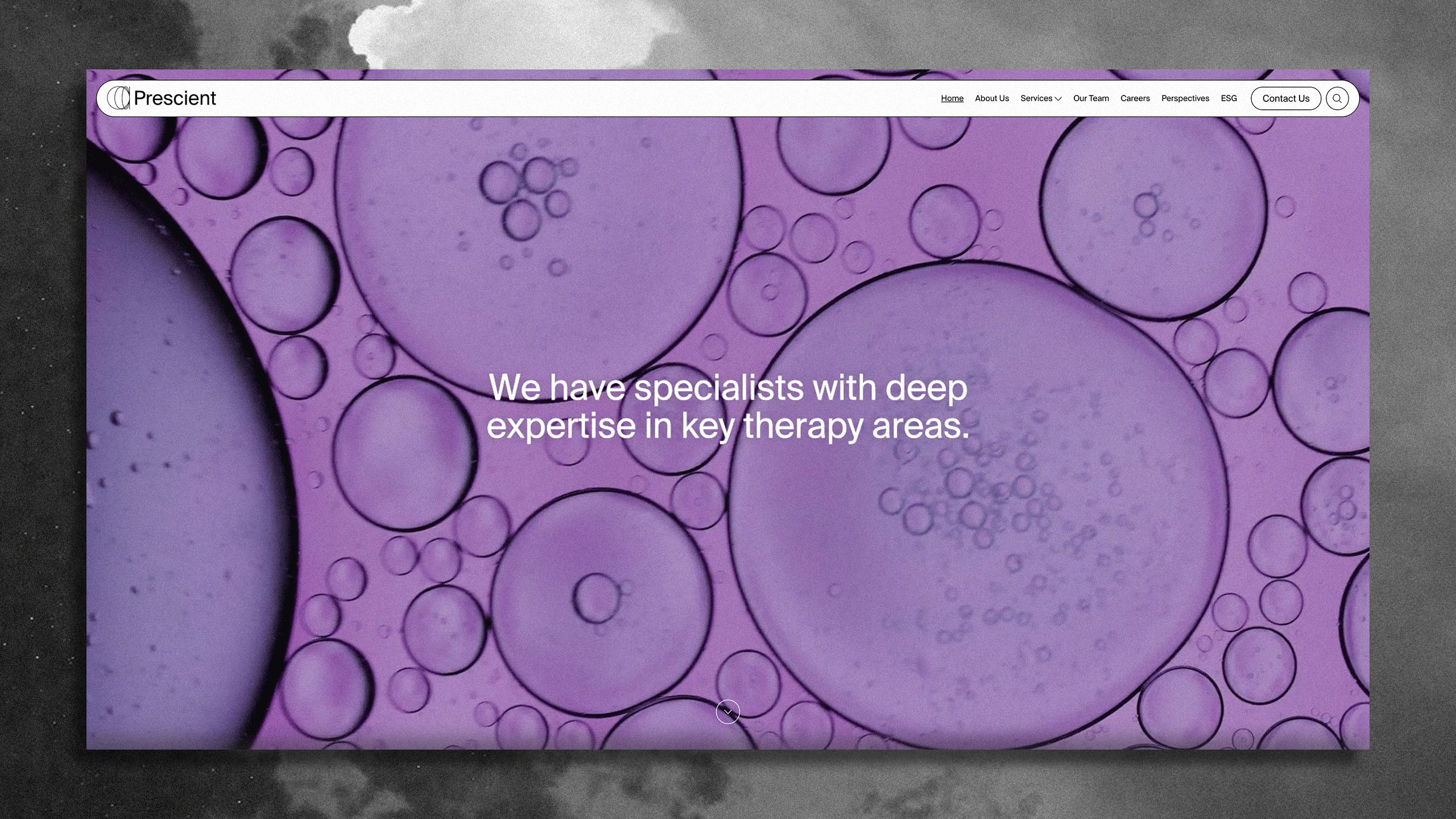
6. Trinity Life Sciences
Trinity Life Sciences is a pharmaceutical consulting company offering end-to-end support across product development, commercialization, and access.
Trinity’s pharma strategy consulting capabilities include indication prioritization, launch strategy, value proposition development, and payer engagement. With clients ranging from top 20 pharma companies to smaller biotechs, Trinity is recognized for combining data science and strategic advisory to deliver precise and actionable guidance.
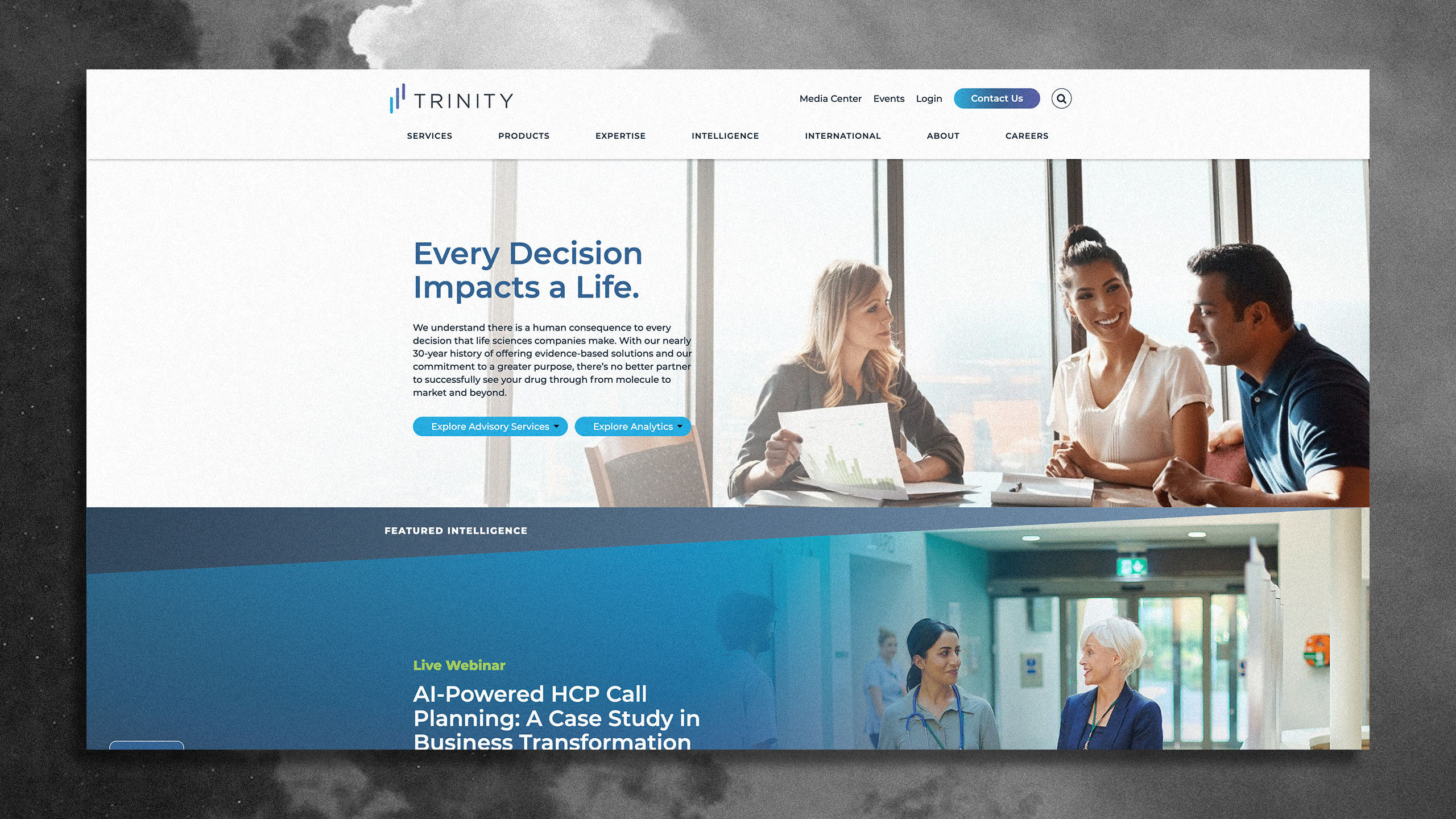
7. Alacrita Consulting
Alacrita is a life sciences consulting firm that brings deep industry experience in biotech, pharma, and medtech strategy.
Its pharmaceutical consulting services span clinical development strategy, regulatory affairs, licensing, and commercialization planning. Alacrita is particularly well-regarded for its ability to provide flexible support to small and mid-cap pharma companies, making it a strong partner for targeted pharmaceutical strategy consulting.
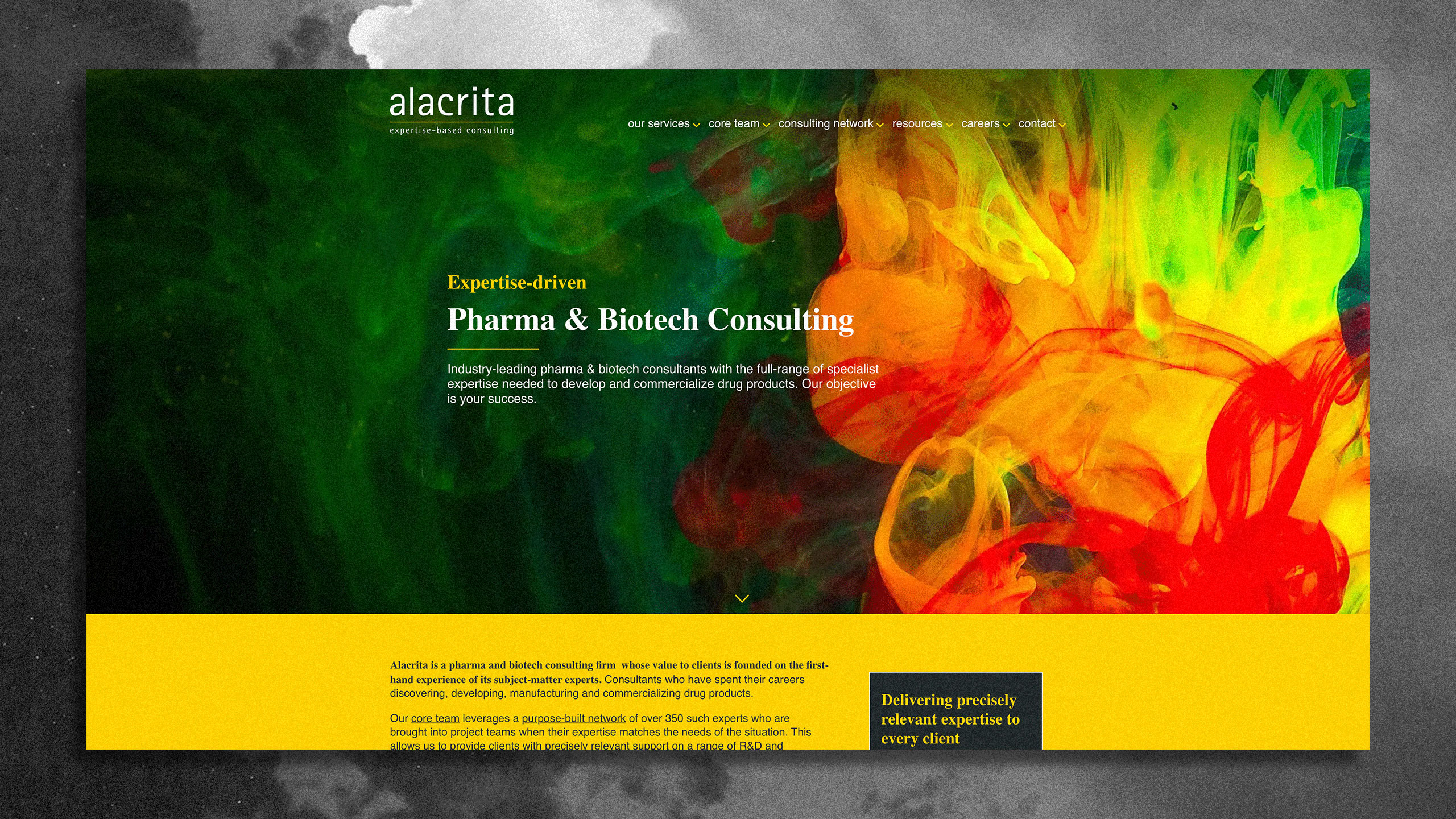
8. Vintura
Vintura is a European-based pharma consulting company focused on life sciences strategy, patient access, and value creation.
They help pharmaceutical and medtech firms craft long-term strategies across portfolio planning, access optimization, and stakeholder engagement. Vintura is known for combining strategic thinking with sustainability and impact considerations—a differentiator in today’s evolving pharmaceutical consulting landscape.
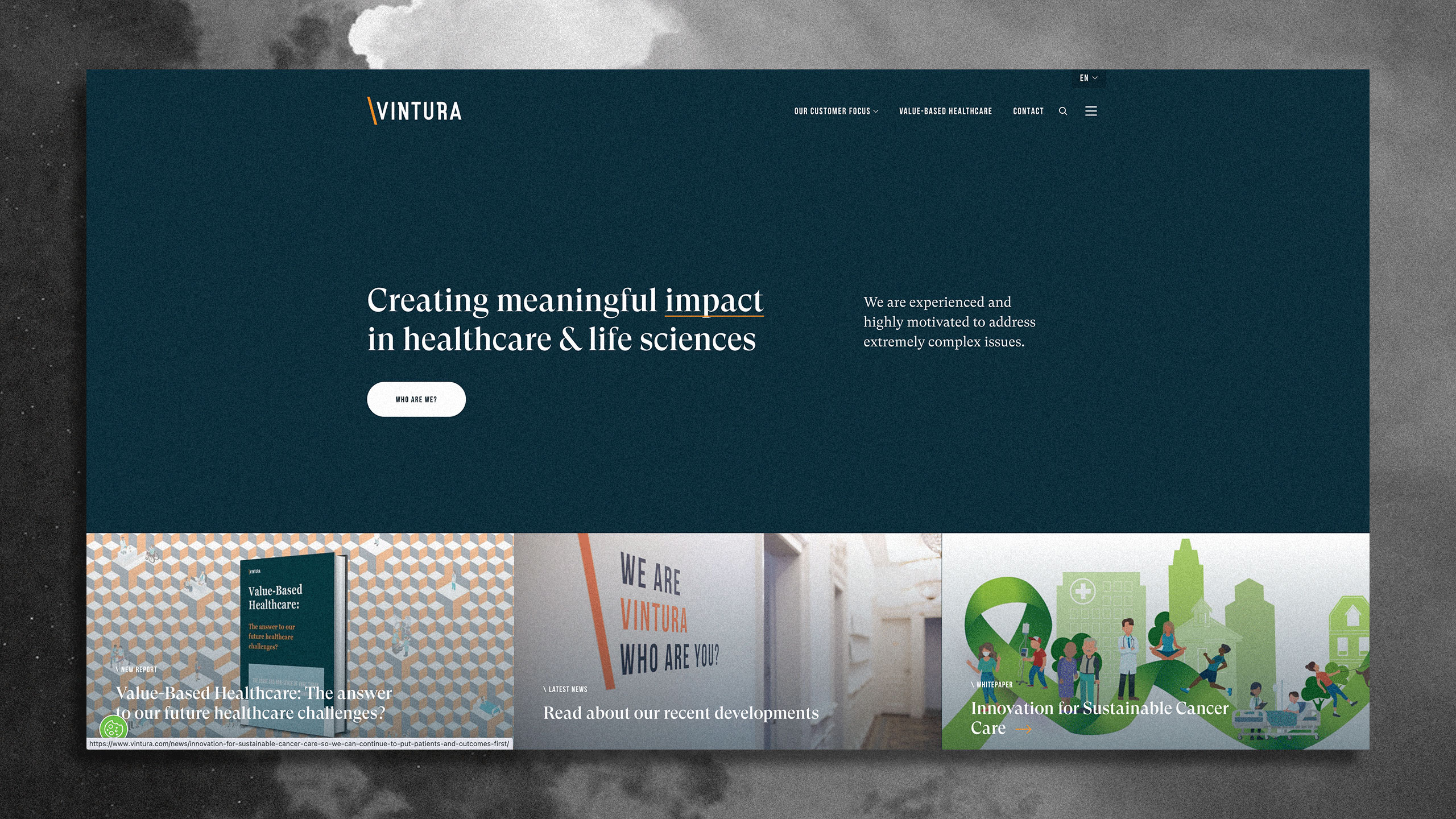
9. Catenion
Catenion is a strategy and innovation consulting firm that serves global pharmaceutical and biotech companies with a focus on R&D productivity and portfolio strategy.
Its pharma strategy consulting services are tailored to complex, science-driven decision-making—such as therapeutic prioritization, pipeline strategy, and scientific due diligence. Catenion is often brought in to help clients optimize innovation portfolios and align long-term vision with scientific opportunity.
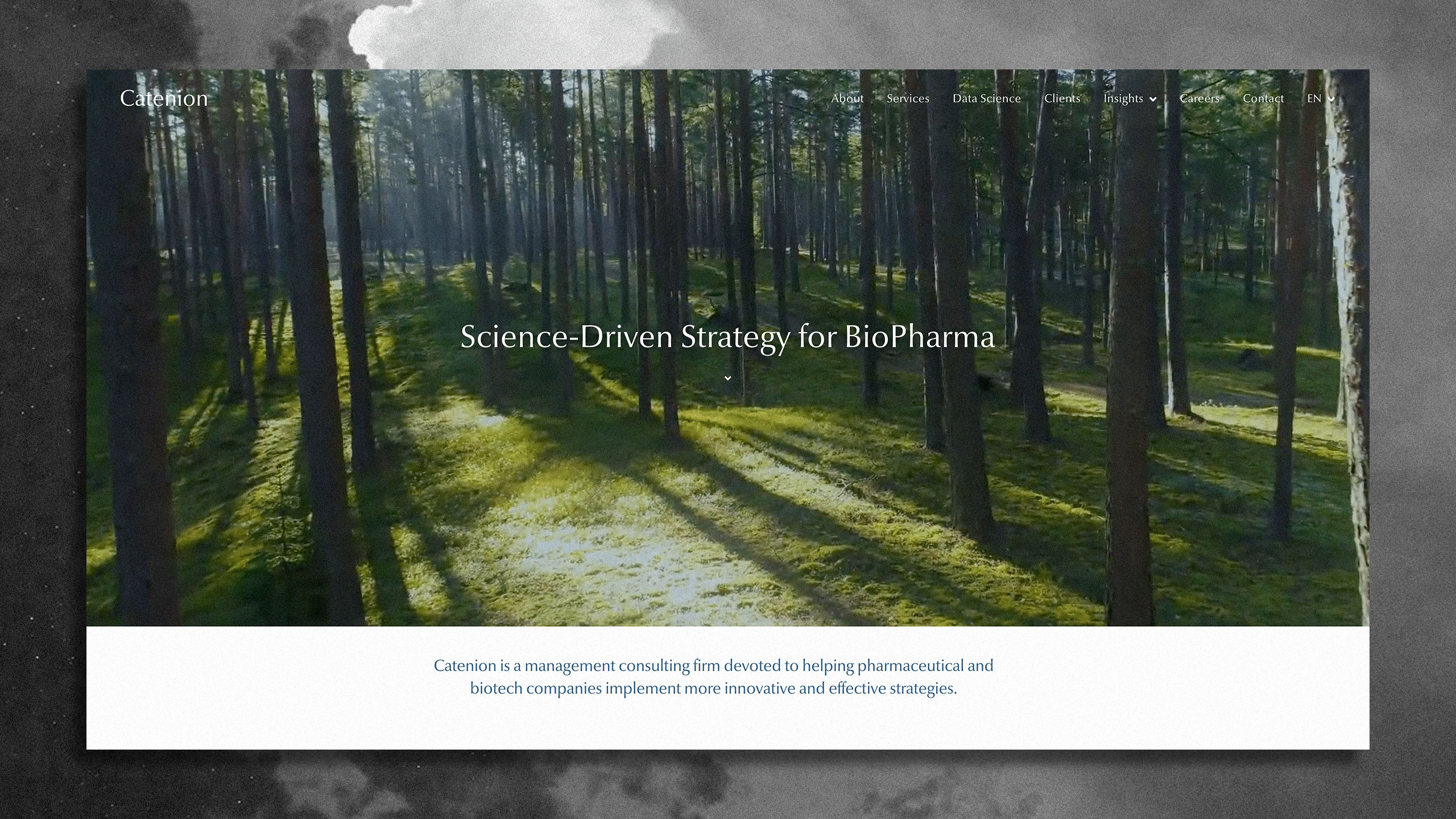
10. Beghou Consulting
Beghou Consulting offers data-driven pharmaceutical strategy consulting with a focus on commercial analytics and sales effectiveness.
Serving primarily pharma and life sciences companies, Beghou helps clients strengthen field force strategy, territory design, forecasting, and launch execution. The firm’s analytical depth and technology-enabled solutions make it a go-to pharmaceutical consulting firm for companies looking to sharpen their commercial edge.
Let me know if you’d like help repackaging this into a web-optimized landing page, visual table, or downloadable report format.
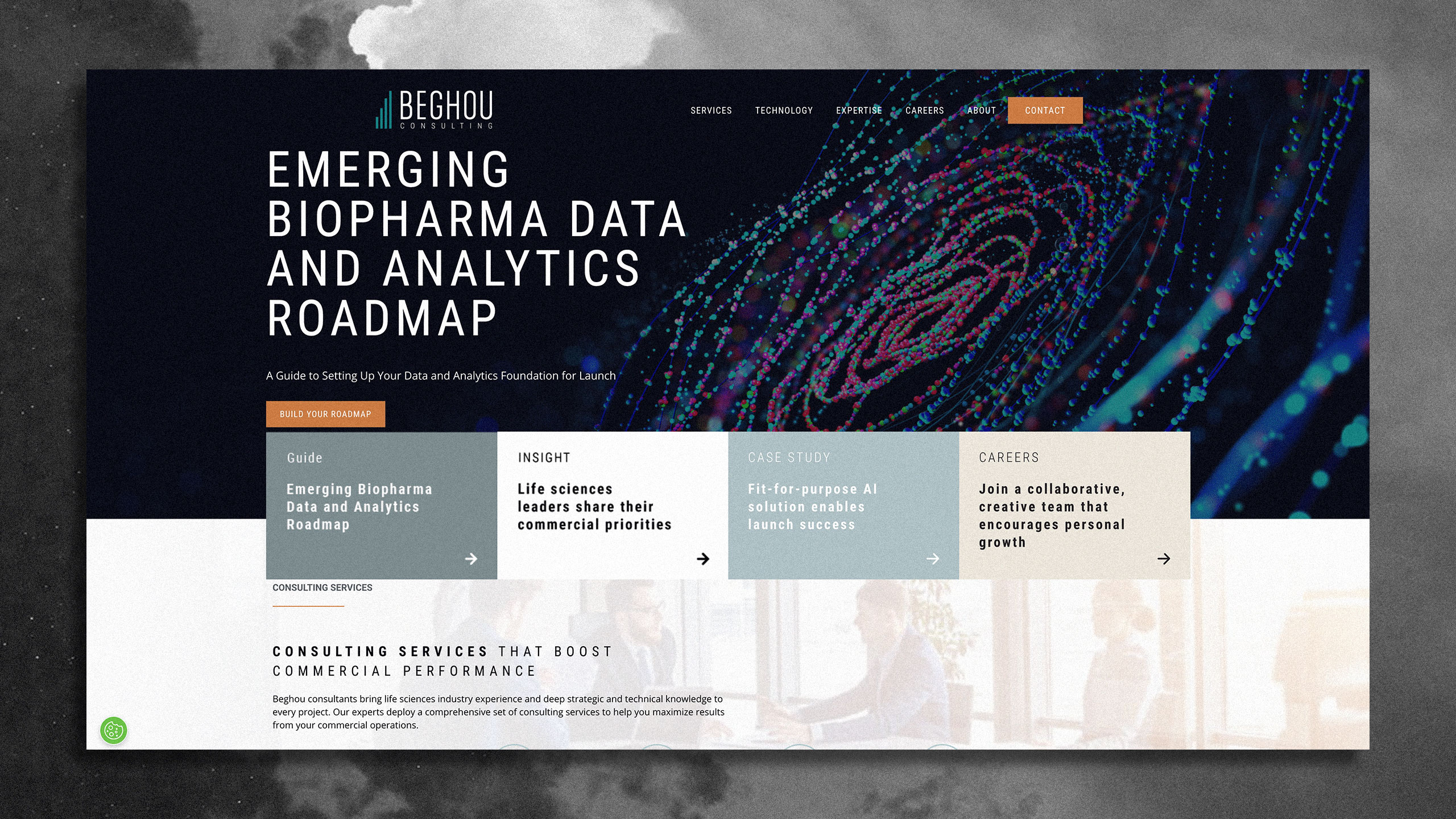
Let’s kickstart the conversation and design stuff people will love.

What Is Pharma Strategy Consulting?
Pharma strategy consulting is a specialized advisory service that helps pharmaceutical and life sciences companies address complex, high-stakes decisions across the value chain—from R&D and clinical development to commercialization, market access, and portfolio management. It involves analyzing scientific pipelines, therapeutic area trends, regulatory landscapes, and payer dynamics to identify where and how a company should invest, launch, or pivot. Pharma strategy consultants guide organizations through critical questions such as: Which assets should be prioritized for development? How should we position a new therapy against competitors? What pricing and access strategy will maximize market potential? The goal is to deliver strategies that align scientific innovation with commercial viability and long-term growth.
How Does Pharma Strategy Consulting Work?
Pharma strategy consulting typically begins with a structured diagnostic phase that examines internal assets, market conditions, competitor activity, and stakeholder needs—whether from regulators, payers, providers, or patients. Consultants then work closely with cross-functional teams to answer core strategic questions such as: What is the optimal indication sequencing for this product? How should we adapt our launch strategy for different geographies? Which markets offer the greatest return given current access barriers? Using data modeling, clinical benchmarking, forecasting, and stakeholder mapping, firms develop actionable recommendations supported by implementation roadmaps. This enables pharmaceutical companies to make confident, data-informed decisions that drive clinical, commercial, and operational success.
What Is a Pharma Strategy Consulting Firm?
A pharma strategy consulting firm is a specialized consultancy that advises pharmaceutical and life sciences companies on strategic decisions across the value chain—from R&D and clinical development to commercialization and market access. These firms provide deep expertise in therapeutic area trends, regulatory environments, payer dynamics, and competitive intelligence to help clients navigate complex challenges and identify growth opportunities. Engagements typically focus on portfolio optimization, launch strategy, pricing and reimbursement, organizational design, and digital transformation, all tailored to the specific scientific and commercial nuances of the pharmaceutical industry.
Pharma strategy consulting firms bring a unique blend of scientific understanding, commercial expertise, and strategic insight tailored to the complexities of the pharmaceutical industry. From early-stage development to post-launch optimization, these firms are equipped to guide organizations through high-stakes decisions that influence pipeline prioritization, market entry, pricing, and access. This section outlines the key capabilities a pharmaceutical strategy consulting firm offers—demonstrating how the right partner can help pharma companies navigate uncertainty, unlock growth opportunities, and align business objectives with shifting market and regulatory demands.
What Services Do Pharma Strategy Consulting Firms Provide?
Portfolio Strategy & Optimization
Pharma strategy consulting firms support clients in evaluating and refining their product portfolios to maximize long-term value and strategic fit. This includes identifying high-potential therapeutic areas, assessing pipeline assets, reallocating investment toward differentiated innovation, and deprioritizing underperforming or non-core assets. Consultants use data-driven frameworks and scenario analysis to help pharmaceutical companies make informed decisions about R&D focus, in-licensing opportunities, and divestitures—ensuring the portfolio remains aligned with evolving scientific, regulatory, and market dynamics.
Go-to-Market & Launch Strategy
A critical area of focus for pharma consulting firms, go-to-market and launch strategy services are designed to ensure successful product commercialization. This includes market sizing, stakeholder mapping, launch sequencing across geographies, and customer engagement planning. Consultants also advise on sales force deployment, patient journey alignment, and omnichannel marketing strategies. These engagements help pharmaceutical companies capture early market share, drive uptake, and establish brand differentiation from the outset.
Pricing, Market Access & Reimbursement Strategy
Pharma strategy consulting firms provide comprehensive support in designing pricing and access strategies that reflect the product’s value, market willingness to pay, and payer expectations. Services include value-based pricing frameworks, health economics modeling, stakeholder interviews, and payer segmentation. Consultants help clients prepare for reimbursement negotiations, HTA submissions, and evolving access requirements across global markets—ensuring both profitability and patient reach are optimized.
R&D and Pipeline Strategy
Pharmaceutical consulting companies assist clients in shaping R&D investments and pipeline development strategies to enhance innovation productivity and clinical differentiation. This includes asset prioritization, indication expansion analysis, licensing evaluation, and benchmarking against competitors. Firms also assess external innovation landscapes and support strategic partnerships. The goal is to ensure that clinical development decisions are grounded in both scientific promise and commercial viability.
Organizational Design & Operating Model Transformation
Pharma strategy consulting firms work with clients to design operating models that improve decision-making, agility, and cross-functional alignment. This includes redefining roles, streamlining reporting structures, and embedding strategic capabilities across business units. Whether following a merger, digital transformation, or pipeline shift, consultants help pharmaceutical organizations adapt their structure and culture to better support innovation and execution at scale.
Competitive Intelligence & Scenario Planning
To help pharmaceutical clients anticipate market shifts and competitor actions, strategy consultants deliver robust competitive intelligence and scenario planning services. This involves synthesizing clinical and commercial data, monitoring pipeline progress across rivals, and modeling market disruption scenarios. Firms enable clients to proactively respond to emerging threats and opportunities, shaping strategies that are resilient under multiple future states.
Digital Transformation & Data Strategy
As digital capabilities become integral to pharma success, consulting firms support digital transformation across R&D, commercial, and operational functions. Services include digital health strategy, AI use case development, data infrastructure planning, and technology partner selection. These engagements help pharmaceutical companies modernize how they generate insights, engage with stakeholders, and deliver outcomes—strengthening competitiveness in an increasingly data-driven industry.
How Long Does a Strategy Consulting Engagement Take to Complete?
Understanding the typical timelines of a pharma strategy consulting engagement is essential for setting expectations around planning, collaboration, and delivery. While timelines vary depending on the project’s complexity, scope, and client readiness, most engagements are structured to balance speed with strategic depth. This section outlines how long pharmaceutical consulting firms typically take to complete key phases—from diagnostics and strategy development to final delivery—offering a clearer picture of what stakeholders can expect in terms of pace, milestones, and results.
Scope and Complexity of the Engagement
The breadth and depth of the consulting project are primary factors influencing its duration. A focused market access strategy for a single therapeutic area may take 4–6 weeks, while a comprehensive portfolio review across multiple business units can extend over several months. Clients should expect longer timelines when engagements involve multiple geographies, cross-functional input, or integration of scientific and commercial data, as these increase both the analytical complexity and stakeholder coordination required.
Level of Internal Client Involvement
The degree to which internal teams are involved can significantly affect how quickly the consulting team can progress. High client engagement—including timely data sharing, access to subject matter experts, and regular decision-making—can accelerate delivery. Conversely, if internal bandwidth is limited or key inputs are delayed, timelines may be extended to allow for alignment and iterative collaboration. Effective client-consultant communication is critical to maintaining momentum.
Availability and Quality of Data
Access to accurate, complete, and well-structured data is essential for timely execution. Whether the consulting firm is assessing clinical trial performance, modeling market access scenarios, or analyzing commercial effectiveness, delays in data collection or poor data quality can slow down insights generation. Clients should anticipate that projects requiring primary research or external data sourcing may require additional time for validation and synthesis.
Number of Stakeholders and Decision Makers
Engagements involving multiple stakeholders—across regions, functions, or leadership levels—often take longer due to the need for broader alignment, more touchpoints, and consensus-driven decision-making. When pharmaceutical strategy consulting firms must navigate varied perspectives or reconcile cross-functional priorities, they typically build in time for stakeholder workshops, reviews, and iteration loops to ensure recommendations are actionable and adopted.
Regulatory and Market-Specific Requirements
For global pharmaceutical companies, timelines are also influenced by the regulatory and market environments in focus. Projects that touch on highly regulated markets, such as the U.S. or EU, or that require adaptation to diverse payer systems may take longer to complete due to the additional analysis and risk considerations involved. Firms often allocate more time for engagements that support submission planning, pricing strategy, or compliance-driven initiatives.
Type of Strategy Being Developed
The nature of the strategic challenge also plays a role in determining timelines. For example, a rapid-response competitor analysis or pricing workshop may be delivered within a few weeks, whereas long-term R&D prioritization, digital transformation planning, or post-merger integration strategies may span 3–6 months or more. Prospective clients should work closely with the consulting firm during the scoping phase to align on expected duration based on the strategic objectives.
How Pharma Strategy Consulting Firms Price Their Work

When evaluating a pharma strategy consulting firm, understanding how pricing works is essential to making an informed investment decision. Strategy engagements vary widely in cost based on scope, duration, level of senior involvement, and project complexity. While the value delivered often justifies the spend, clients should be aware of the different pricing models used across the industry and the factors that influence total cost. This section breaks down how pharmaceutical consulting firms typically structure their fees, what drives pricing variation, and what clients can expect in terms of budgeting for strategic support.
Scope and Complexity of the Project
The overall scope and complexity of the engagement are primary drivers of pricing. Pharma strategy consulting firms evaluate how many strategic questions need to be answered, how many markets or business units are involved, and whether the work requires integration of both scientific and commercial elements. More complex projects—such as global product launch strategies or portfolio optimization across multiple therapeutic areas—typically command higher fees due to the increased analysis, resource allocation, and senior consultant involvement required.
Duration of the Engagement
Longer engagements typically incur higher costs, not just due to time spent, but also because they require sustained allocation of consulting teams, periodic checkpoints, and potentially evolving workstreams. Pharmaceutical strategy consulting firms will often price engagements based on estimated weeks or months of work, factoring in the intensity of each phase and the level of ongoing client support expected. Shorter, more focused projects may be offered at a fixed fee, while longer or more exploratory engagements may require flexible, time-based billing.
Level of Team Seniority Involved
The composition of the consulting team—especially the ratio of senior partners to junior consultants—significantly impacts pricing. Strategic engagements that demand frequent input from senior leaders, deep therapeutic area expertise, or board-level communication will generally carry a premium. Pharma consulting companies may also adjust pricing based on how specialized the expertise needs to be, especially for rare disease markets or cutting-edge modalities where talent is more limited and high in demand.
Type of Pricing Model
Pharma strategy consulting firms may use different pricing models depending on the nature of the engagement. Common models include fixed-fee arrangements for well-defined projects, time-and-materials for more flexible or iterative work, and milestone-based pricing for longer-term partnerships. Each model aligns differently with project scope, risk-sharing, and client preferences, and firms often work with clients during scoping to determine the most suitable structure.
Geographic Breadth and Market Coverage
Projects that span multiple geographies or require in-depth market access insights in diverse regulatory environments will often be priced higher. This is due to the additional research, stakeholder interviews, localization efforts, and regional expertise required. Pharmaceutical consulting companies may also need to allocate teams with multilingual capabilities or deep local market knowledge, which adds to the engagement cost.
Data and Research Requirements
If a strategy engagement requires extensive primary research, advanced modeling, or external data licensing, the cost will reflect these needs. Some pharma strategy consulting firms offer proprietary data capabilities, while others may pass third-party data expenses through to clients. Projects requiring health economics models, clinical trial benchmarking, or payer research will typically have higher budgets due to the level of analytical rigor involved.
Why Hire a Pharma Strategy Consulting Firm?
Choosing to work with a pharma strategy consulting firm can be a decisive factor in navigating the complexity, competition, and rapid change that define today’s pharmaceutical landscape. Whether addressing clinical pipeline decisions, preparing for a global product launch, or responding to regulatory shifts, these firms provide the strategic clarity and industry expertise needed to move forward with confidence. This section explores the core reasons why partnering with a pharmaceutical consulting firm offers value beyond internal capabilities—bringing specialized insights, focused execution, and measurable impact to high-stakes business decisions.
Specialized Industry Expertise
Pharma strategy consulting firms offer deep expertise that blends scientific understanding, regulatory knowledge, and commercial acumen—capabilities that are difficult to build or maintain in-house. These firms stay closely attuned to evolving trends in clinical development, payer landscapes, and market dynamics, enabling them to offer clients informed, high-confidence recommendations. Their strategic guidance is grounded in real-world experience across multiple therapeutic areas and business models, making them invaluable partners for addressing complex, industry-specific challenges.
Objective, Data-Driven Perspective
Engaging a pharmaceutical strategy consulting firm provides an independent, objective lens that can help companies challenge internal assumptions and evaluate decisions with greater clarity. Consultants apply rigorous data analysis, proven frameworks, and benchmarking against market peers to deliver unbiased insights. This level of objectivity is particularly important when making high-stakes decisions about investments, product positioning, or market expansion strategies that require a clear-eyed view of risks and opportunities.
Speed and Focused Execution
Pharma consulting companies are designed to move quickly, offering clients accelerated problem-solving without sacrificing quality. Their teams are structured to mobilize efficiently, work through complex issues with discipline, and deliver strategic outcomes within tight timelines. For organizations constrained by internal bandwidth or caught in shifting market conditions, consultants provide the added capacity and focused expertise to drive progress when it matters most.
Strategic Alignment Across Functions
One of the key advantages of working with a pharmaceutical consulting firm is their ability to align cross-functional stakeholders—across R&D, commercial, medical affairs, and regulatory teams—around a cohesive strategy. By facilitating structured workshops, synthesizing input from diverse perspectives, and focusing on strategic priorities, consultants help ensure that decisions are not only sound but also actionable across the organization. This alignment reduces execution risk and improves internal buy-in.
Support for High-Stakes Moments
Whether preparing for a product launch, undergoing a merger, or responding to a regulatory shift, pharma companies often face moments where the margin for error is slim. Strategy consultants bring experience from comparable situations and offer structured guidance to navigate uncertainty. Their ability to quickly assess challenges, define options, and support decision-making makes them a critical asset during times of transition or transformation.
Resource Efficiency and Cost Effectiveness
While hiring a consulting firm involves upfront investment, it often proves cost-effective when compared to the long-term cost of misaligned strategies, delayed execution, or underperforming products. Pharma strategy consulting firms offer targeted support without the burden of permanent overhead, helping companies scale their strategic capabilities precisely when needed. This efficiency allows leadership teams to focus on execution while leveraging external experts for critical planning and insight.
How to Choose The Most Reliable Pharma Strategy Consulting Firm

Selecting the right pharma strategy consulting firm is a critical decision that can shape the success of key initiatives—from pipeline strategy and market entry to pricing, access, and organizational transformation. With a wide range of firms offering varying levels of specialization, capabilities, and industry experience, making the right choice requires more than scanning credentials. This section outlines what to consider when evaluating pharmaceutical consulting firms, helping stakeholders identify a partner that aligns with their goals, challenges, and internal culture.
Relevant Therapeutic Area and Market Experience
When selecting a pharma strategy consulting firm, it’s essential to ensure they have direct experience in your specific therapeutic area and target markets. Firms with relevant case studies or past engagements in similar clinical domains are better equipped to understand the scientific nuances, competitive landscape, and stakeholder dynamics unique to your space. This domain familiarity leads to more tailored strategies, faster onboarding, and fewer assumptions—ultimately resulting in more actionable and impactful outcomes.
Proven Track Record of Strategic Impact
A firm’s ability to demonstrate measurable strategic impact—whether in accelerating time-to-market, improving portfolio ROI, or securing payer access—is a strong indicator of the value they can bring. Look for evidence of past success through client references, published work, or quantitative case outcomes. Pharmaceutical consulting firms that consistently deliver strategic clarity and business results signal their capacity to support high-stakes decision-making in complex, regulated environments.
Depth of Cross-Functional Expertise
Pharma strategy consulting engagements often require collaboration across R&D, medical affairs, commercial, and regulatory teams. Firms with cross-functional depth can better align stakeholders, bridge organizational silos, and deliver strategies that are not only well-informed but also executable across the enterprise. This capability is particularly important in engagements involving pipeline prioritization, go-to-market planning, or post-merger integration.
Customization and Flexibility in Approach
Avoid firms that offer rigid, one-size-fits-all frameworks. The most effective pharmaceutical strategy consulting firms tailor their methodologies to the client’s specific goals, constraints, and organizational structure. Flexibility in scope, project phasing, and delivery format allows for greater adaptability—especially in dynamic market conditions or when internal resources are limited. A consulting partner that can pivot with your needs will deliver greater value over time.
Quality of Talent and Team Fit
The seniority, expertise, and communication style of the team assigned to your project are as important as the firm’s brand name. Ensure the consulting team includes individuals with relevant scientific and strategic experience, and that they engage effectively with your internal teams. Chemistry and collaboration style can strongly influence project success, especially when working through sensitive or high-pressure initiatives.
Ability to Navigate Global and Local Market Dynamics
For pharmaceutical companies operating internationally, it’s critical that a consulting partner can navigate both global strategy and local market nuances. This includes understanding regional regulatory requirements, access and reimbursement systems, and cultural factors affecting product adoption. Firms with a global presence or local expertise across key markets can help ensure strategies are grounded in reality and capable of scaling across borders.
Strong Analytical and Data Capabilities
High-quality pharma strategy consulting relies on the ability to synthesize data into clear, actionable insights. Look for firms that demonstrate strength in analytics, forecasting, market modeling, and data visualization. Whether working with internal datasets or integrating external market intelligence, top firms combine analytical rigor with strategic foresight to support confident, data-driven decision-making.
15 Questions To Ask Pharma Strategy Consulting Firm Before You Hire One

Before hiring a pharma strategy consulting firm, it’s natural to have questions about what the partnership will look like, how value will be delivered, and whether the firm is the right fit for your specific needs. Given the high stakes involved in strategic decision-making across clinical development, commercialization, and market access, stakeholders need clear answers to assess capabilities, compatibility, and expected outcomes. This section outlines key questions to consider when evaluating pharmaceutical consulting firms, helping decision-makers make a more informed and confident choice.
Here are 15 thoughtful and strategic questions a prospective client might ask before hiring a pharma strategy consulting firm:
- What experience do you have in our specific therapeutic area or disease category?
- Can you share examples of past engagements where your firm delivered measurable impact in the pharmaceutical industry?
- What is your approach to developing strategies for pipeline prioritization and portfolio optimization?
- How do you support global versus local market strategy, especially regarding pricing and access?
- What is your process for integrating scientific, regulatory, and commercial perspectives into a cohesive strategy?
- Who will be assigned to our project, and what relevant experience does the core team bring?
- How do you tailor your frameworks and methodologies to align with our specific business model and goals?
- What is your experience working with both large pharma and emerging biotech companies?
- How do you incorporate data and analytics into your strategy development process?
- What tools, benchmarks, or proprietary models do you use to guide your recommendations?
- How do you handle engagements that involve multiple internal stakeholders across R&D, commercial, and regulatory teams?
- What is the typical duration of your projects, and how are they structured across phases?
- What pricing models do you offer, and what factors influence the total cost of an engagement?
- How do you measure the success of a pharma strategy consulting engagement after project completion?
- Can you provide client references or case studies relevant to our type of challenge?
1. What Experience Do You Have in Our Specific Therapeutic Area or Disease Category?
Understanding whether a consulting firm has worked in your particular therapeutic area is critical. Each disease category has its own clinical complexities, regulatory considerations, market dynamics, and stakeholder landscape. Firms with direct experience in your area can more quickly grasp the nuances of your business challenge, speak the scientific language of your domain, and apply real-world insights from similar cases. This reduces the learning curve, enhances the relevance of recommendations, and ultimately leads to more effective strategy development.
2. Can You Share Examples of Past Engagements Where Your Firm Delivered Measurable Impact in the Pharmaceutical Industry?
Asking for past engagement examples helps validate the consulting firm’s ability to translate strategic thinking into tangible results. Look for specific metrics—such as accelerated time-to-market, improved portfolio ROI, or successful market entry—that demonstrate impact. This question is also a good way to assess the firm’s understanding of key performance indicators in pharma and whether they’re able to drive results across functions like R&D, commercial, and medical affairs.
3. What Is Your Approach to Developing Strategies for Pipeline Prioritization and Portfolio Optimization?
Pipeline and portfolio decisions are among the most resource-intensive and high-risk in the pharmaceutical industry. This question reveals the firm’s ability to bring structured thinking, data-driven methodologies, and therapeutic area expertise to prioritization efforts. A strong firm should explain how they evaluate scientific viability, market potential, and strategic fit—while also incorporating external trends and competitor activity—to help clients make confident investment decisions across assets.
4. How Do You Support Global Versus Local Market Strategy, Especially Regarding Pricing and Access?
Global product launches and market access strategies require careful coordination across varied regulatory systems, payer expectations, and pricing pressures. This question uncovers whether the firm can differentiate between global strategy development and local market execution. The right firm should demonstrate an ability to create cohesive strategies while tailoring them to country-specific dynamics—especially in high-priority markets like the U.S., EU5, China, and emerging markets.
5. What Is Your Process for Integrating Scientific, Regulatory, and Commercial Perspectives Into a Cohesive Strategy?
Pharma success depends on the alignment of science, regulation, and business. This question assesses the firm’s ability to bridge those domains in a cohesive, cross-functional strategy. Firms should describe how they bring together experts from each area—whether internally or through partnerships—and how they reconcile technical considerations (e.g., clinical endpoints, trial timelines) with commercial objectives (e.g., market positioning, pricing strategy). The best partners ensure no strategic blind spots are left unaddressed.
6. Who Will Be Assigned to Our Project, and What Relevant Experience Does the Core Team Bring?
The qualifications and expertise of the actual project team are just as important—if not more so—than the firm’s overall brand. Ask about the day-to-day team members, their backgrounds in pharma or life sciences, and their familiarity with your type of project. A strong consulting firm should be transparent about the mix of senior and junior talent and ensure your engagement is led by professionals with relevant experience, not just generalist consultants.
7. How Do You Tailor Your Frameworks and Methodologies to Align With Our Specific Business Model and Goals?
No two pharmaceutical companies are alike. Whether you’re a global pharma player, a specialty drugmaker, or a clinical-stage biotech, the consulting approach should reflect your unique challenges and opportunities. This question helps determine whether the firm will adapt its tools, frameworks, and processes—or simply apply a standard model. The ability to customize strategy based on your business model, market position, and internal resources is a key differentiator.
8. What Is Your Experience Working With Both Large Pharma and Emerging Biotech Companies?
A firm’s experience across different organizational types signals versatility and adaptability. Larger pharmaceutical companies often require global coordination, stakeholder alignment, and operational integration. In contrast, early-stage or growth biotechs may prioritize funding strategy, asset positioning, or lean launch execution. A consulting firm that has worked across this spectrum will understand how to calibrate strategic advice based on the client’s size, resources, and stage of maturity.
9. How Do You Incorporate Data and Analytics Into Your Strategy Development Process?
Data is central to sound strategic decisions in pharma, from clinical forecasting to market modeling. This question probes the firm’s analytical capabilities—how they access and analyze internal and external data, apply modeling techniques, and use those insights to shape recommendations. Look for a structured, transparent approach to data handling, as well as clarity on how analytics support rather than replace strategic thinking.
10. What Tools, Benchmarks, or Proprietary Models Do You Use to Guide Your Recommendations?
A consulting firm’s proprietary tools, industry benchmarks, or strategic frameworks can provide structure and rigor to their approach. Ask whether these tools are grounded in pharma-specific insights and whether they’ve been validated across prior engagements. Firms that rely solely on generic frameworks may lack the depth needed to address the intricacies of pharmaceutical strategy, whereas those with customized models can accelerate insight generation and support more defensible decisions.
11. How Do You Handle Engagements That Involve Multiple Internal Stakeholders Across R&D, Commercial, and Regulatory Teams?
Strategy development in pharma often involves collaboration across siloed functions with differing incentives and perspectives. This question helps assess how the firm facilitates stakeholder alignment—whether through structured workshops, stakeholder interviews, or governance frameworks. Effective consultants act as neutral facilitators, ensuring all voices are heard while driving consensus around strategic priorities and action plans.
12. What Is the Typical Duration of Your Projects, and How Are They Structured Across Phases?
Understanding timelines and project structure helps set expectations and ensures internal readiness. Ask how long similar engagements have taken, what phases are involved (e.g., discovery, analysis, recommendation, implementation planning), and how flexibility is built into the process. The best pharmaceutical strategy consulting firms will provide a clear project roadmap, including touchpoints for alignment and feedback along the way.
13. What Pricing Models Do You Offer, and What Factors Influence the Total Cost of an Engagement?
Consulting pricing can vary widely, and clarity upfront prevents surprises later. This question should reveal whether the firm offers fixed-fee, time-and-materials, or milestone-based pricing—and what drives those choices. Key factors typically include scope, duration, team composition, and data requirements. Understanding how pricing aligns with value delivered helps you evaluate return on investment and prioritize engagements effectively.
14. How Do You Measure the Success of a Pharma Strategy Consulting Engagement After Project Completion?
A results-driven firm should define success not just by the quality of the deliverables but by how well the strategy translates into action. Ask how outcomes are tracked—whether through implementation KPIs, post-engagement reviews, or business performance metrics. Firms that build in success measurement from the start signal a commitment to accountability and long-term impact.
15. Can You Provide Client References or Case Studies Relevant to Our Type of Challenge?
References and case studies are among the most reliable ways to validate a consulting firm’s experience and effectiveness. Asking for examples relevant to your business challenge—whether it’s a product launch, portfolio review, or access strategy—helps you assess the firm’s credibility, sector knowledge, and ability to execute. A reputable pharmaceutical consulting firm should be ready to provide anonymized case examples or put you in touch with past clients upon request.
Searching for the Right Pharma Strategy Consulting Firm?
In an industry as complex, regulated, and rapidly evolving as pharmaceuticals, the stakes for strategic decision-making are exceptionally high. From shaping R&D investments and optimizing product portfolios to navigating pricing, access, and global commercialization, pharma strategy consulting firms provide critical expertise and clarity. Their value lies not only in specialized knowledge, but in their ability to align cross-functional teams, bring data-driven insights to the forefront, and execute with precision and speed. Whether you’re a large pharma organization or a scaling biotech, working with the right consulting partner can unlock new growth, reduce risk, and ensure strategic alignment in an increasingly competitive market.
G & Co. is a trusted partner to pharmaceutical and life sciences companies seeking strategic clarity, executional precision, and market-driven innovation. As a leading pharma strategy consulting firm, G & Co. helps clients solve their most pressing challenges—from portfolio optimization and launch strategy to market access and digital transformation. With deep cross-functional expertise, a data-informed approach, and proven success in aligning science with business outcomes, G & Co. delivers the agility, insight, and impact that forward-thinking pharma companies need to stay ahead.
Submit an inquiry to G & Co. on our contact page or click on the blue "Click to Contact Us" button on the bottom right corner of your screen for your convenience. We look forward to hearing from you.






%20(1).png)






